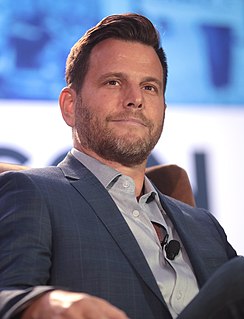A Quote by John Adams
As good government is an empire of laws, how shall your laws be made? In a large society, inhabiting an extensive country, it is impossible that the whole should assemble to make laws. The first necessary step, then, is to depute power from the many to a few of the most wise and good.
Related Quotes
A very wise father once remarked, that in the government of his children, he forbid as few things as possible; a wise legislature would do the same. It is folly to make laws on subjects beyond human prerogative, knowing that in the very nature of things they must be set aside. To make laws that man cannot and will not obey, serves to bring all law into contempt. It is very important in a republic, that the people should respect the laws, for if we throw them to the winds, what becomes of civil government?
As the Nazi regime developed over the years, the whole structure of decision-making was changed. At first there were laws. Then there were decrees implementing laws. Then a law was made saying, ‘There shall be no laws.’ Then there were orders and directives that were written down, but still published in ministerial gazettes. Then there was government by announcement; orders appeared in newspapers. Then there were the quiet orders, the orders that were not published, that were within the bureaucracy, that were oral. And finally, there were no orders at all. Everybody knew what he had to do.
The Constitution guarantees protection to property, and we must make that promise good. But it does not give the right of suffrage to any corporation. It is necessary that laws should be passed to prohibit the use of corporate funds directly or indirectly for political purposes; it is still more necessary that such laws should be thoroughly enforced.
Our most conservative estimates show that by adopting shall-issue laws(concealed carry laws), states reduced murders by 8.5%, rapes by 5%, aggravated assaults by 7% and robbery by 3%... While support for strict gun-control laws usually has been strongest in large cities, where crime rates are highest, that's precisely where right-to-carry laws have produced the largest drops in violent crimes.
A constitution, therefore, is to a government what the laws made afterwards by that government are to a court of judicature. The court of judicature does not make the laws, neither can it alter them; it only acts in conformity to the laws made: and the government is in like manner governed by the constitution.
Many people say that we have sufficient laws in our country, just that they are not implemented properly. I completely disagree with them. I have studied many of the laws very carefully. We are still being governed by the same colonial laws which existed in British times. They have not been changed. Many of these laws need to be changed.
A single assembly will never be a steady guardian of the laws, if Machiavel is right, when he says, Men are never good but through necessity: on the contrary, when good and evil are left to their choice, they will not fail to throw every thing into disorder and confusion. Hunger and poverty may make men industrious, but laws only can make them good; for, if men were so of themselves, there would be no occasion for laws; but, as the case is far otherwise, they are absolutely necessary.
I know some say, let us have good laws, and no matter for the men that execute them: but let them consider, that though good laws do well, good men do better: for good laws may want good men, and be abolished or evaded [invaded in Franklin's print] by ill men; but good men will never want good laws, nor suffer ill ones.
The laws of Nature, that is to say the laws of God, plainly made every human being a law unto himself, we must steadfastly refuse to obey those laws, and we must as steadfastly stand by the conventions which ignore them, since the statutes furnish us peace, fairly good government, and stability, and therefore are better for us than the laws of God, which would soon plunge us into confusion and disorder and anarchy if we should adopt them.
































